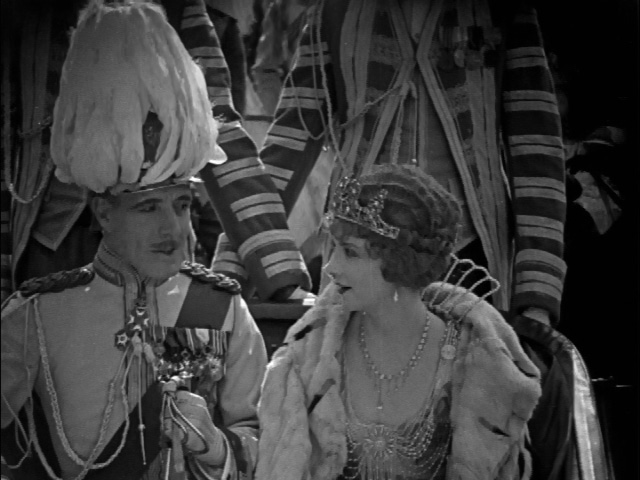

Scenes are trimmed, slimmed down and cross-cut. Superfluous supporting characters are combined or cut. Having read the novel and watched the films, I have to say that the 1937 version not only successfully adapts the tale, it actually improves on it.

If it is squandered on non-essential characters and bad comedy relief… You have bored your audience and that is a serious problem. Character development, foreshadowing, something. There is nothing wrong with a deliberate pace but it needs to serve some purpose. Or maybe they were so charmed by Rupert that they forgot to punish him. Rather than dying in a duel against Rupert, Michael gets a dagger through the heart when he attempts to push Rupert away from Antoinette.) Perhaps the censors felt that Rupert would get his comeuppance in a theoretical sequel that never came to be.
The prisoner of zenda silent movie#
This movie version also changes the death of Michael.
The prisoner of zenda silent code#
Remember, this was the Breen era of the motion picture code and letting a cold-blooded killer off the hook was a definite no-no. This in spite of leaving a trail of corpses in his wake. Fairbanks plays him just twisted enough to be dangerous but not so twisted that he loses the audience’s affection.Īnd, like all the other versions of this tale, Rupert lives to fight another day. A few turns to the right and his Rupert would be an Errol Flynn-esque charming rogue. He grins, banters, and generally looks oh so Fairbanksian– all the while slipping a knife through someone’s ribs. In this role, though, he is truly his father’s son. had specialized in modern comedies and dramas up until this point. had practically invented the costumed swashbuckler, Doug Jr. What makes Fairbanks so good in the role is both his natural screen charm and the legacy of his father. Fortunately, he finally agreed and became the definitive Rupert of Hentzau. He hesitated to take the part of Rupert since he would be a secondary character and a villain. was in a bit of a career slump when 1937 rolled around. Who will be named champion of this classic swashbuckler? Let the fight begin! The Talkie Challenger: The Prisoner of Zenda (1937)ĭouglas Fairbanks Jr.

And in that corner we have the 1937 version of the same tale, a film with more 1930’s stars than you can shake a stick at. Ladies and gentlemen, in this corner we have the 1922 version of The Prisoner of Zenda, a grand epic directed by Rex Ingram.

The Prisoner of Zenda is widely available on DVD. The result was the infinitely more watchable Scaramouche. This time, though, Novarro would be the hero and Stone the villain. Novarro and Stone would be paired again the following year as hero and villain. While is is beautiful to look at and historically important, it never really clicks as entertainment. The star-making performance from Novarro is undone by the slow pace and strange tangents that the plot follows. The Prisoner of Zenda is an uneven film in general. What was the point of all of Rupert’s aggressive attention to Antoinette if there is no payoff? Perhaps the filmmakers felt that a graphic murder would damage Novarro’s future career. In know I was just complaining about not enough Rudolf action but killing Michael in this way does not make story sense. In the film, Rudolf impales him with a thrown sword. In the book, Michael is killed in a duel with Rupert after the latter makes one too many passes at Antoinette. Perhaps a more forceful actor could have withstood this assault but Stone fades into the background a little too often.Īnother odd change from book to film (and this is a spoiler) is the death of Michael. Again, this serves to weaken Rudolf’s claim as protagonist. Lewis Stone is further shorted when the film-makers choose to cut several of the book’s scenes of derring-do (including one where Rudolf holds off Michael’s henchmen armed with a tea table!) and hand others over to Fritz. Proportion and balance are two of the most ignored and misunderstood elements of fiction but when they are out of whack… If only Lewis Stone had defended his screentime with equal gusto…


 0 kommentar(er)
0 kommentar(er)
